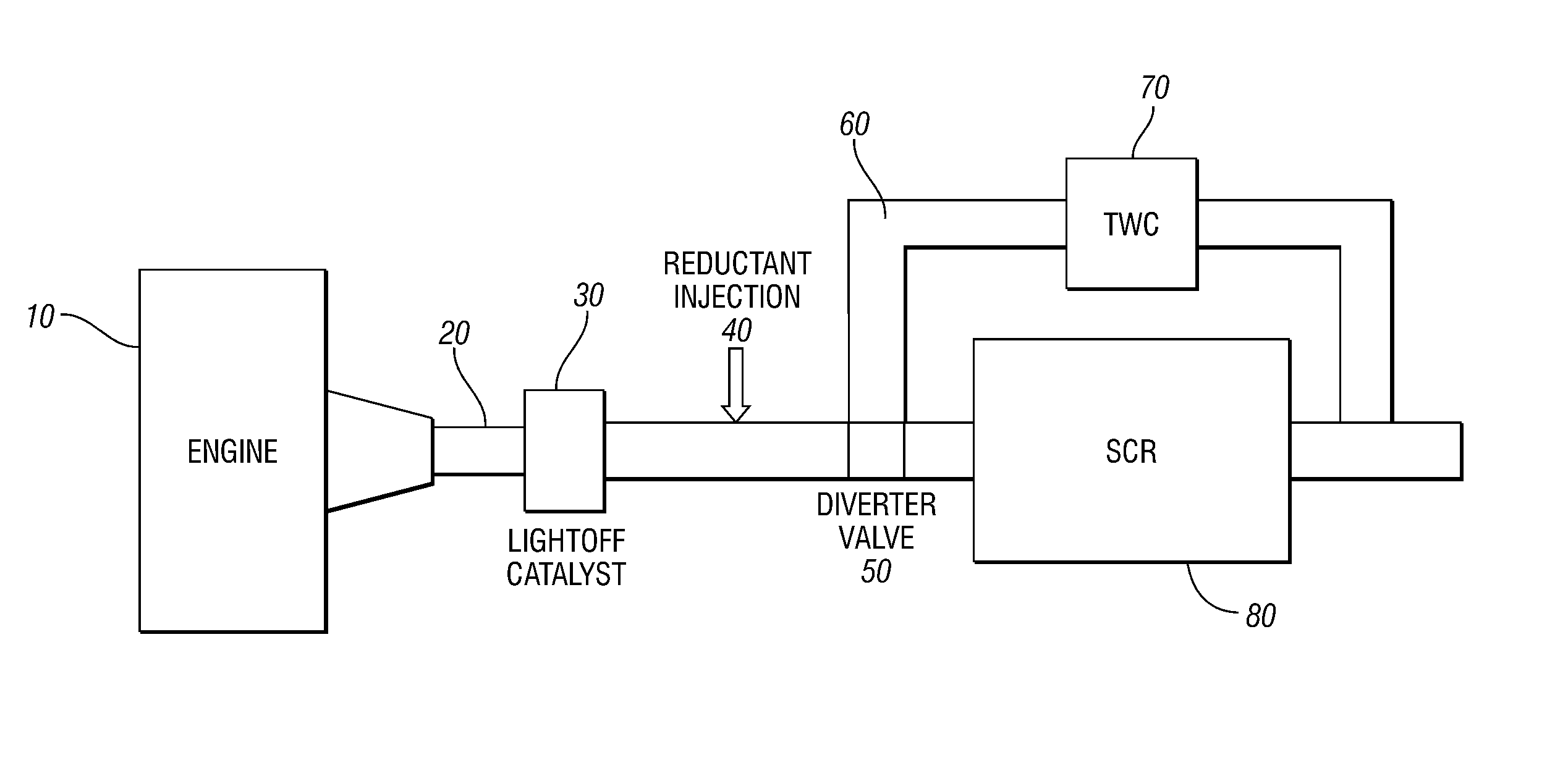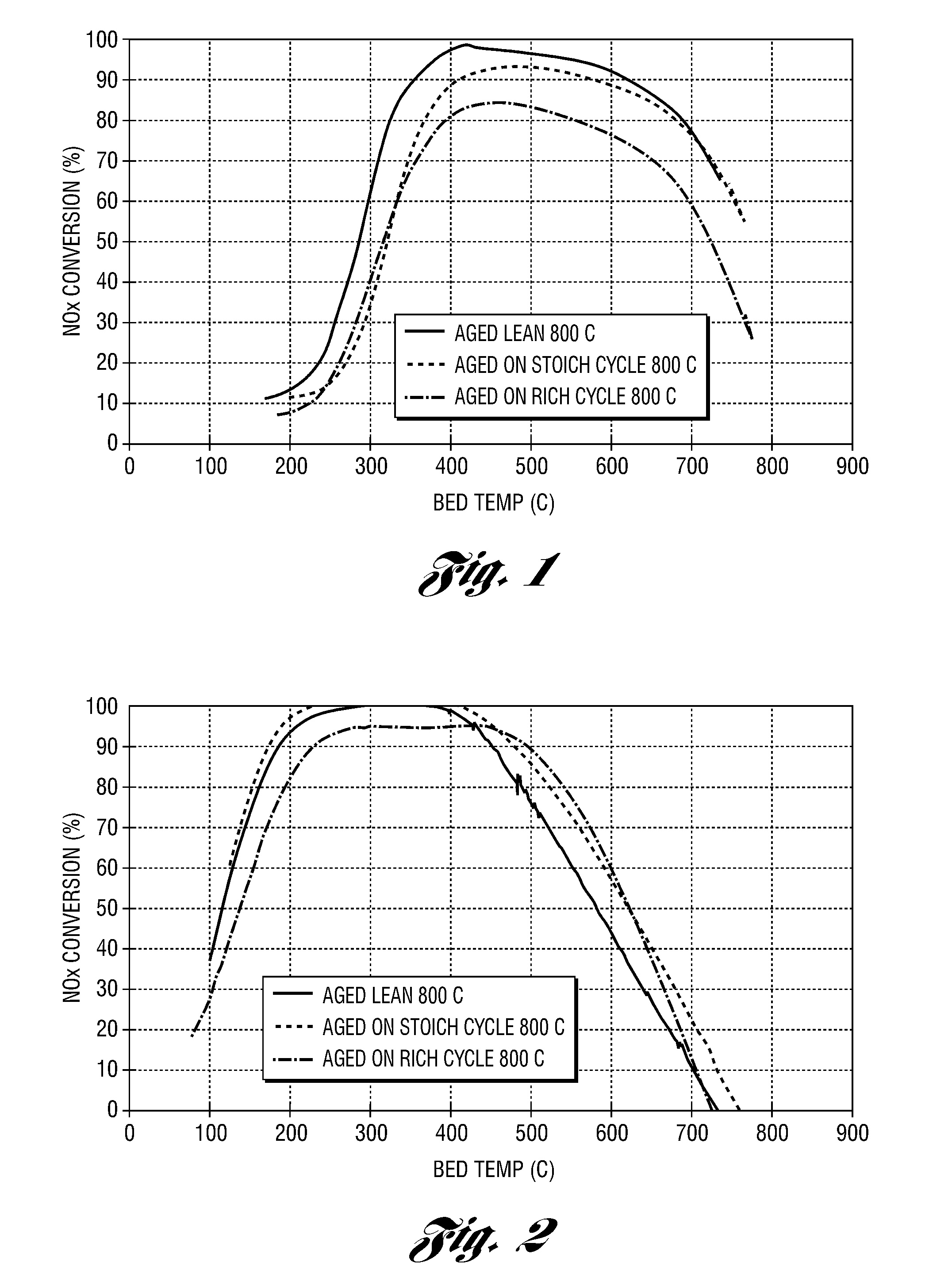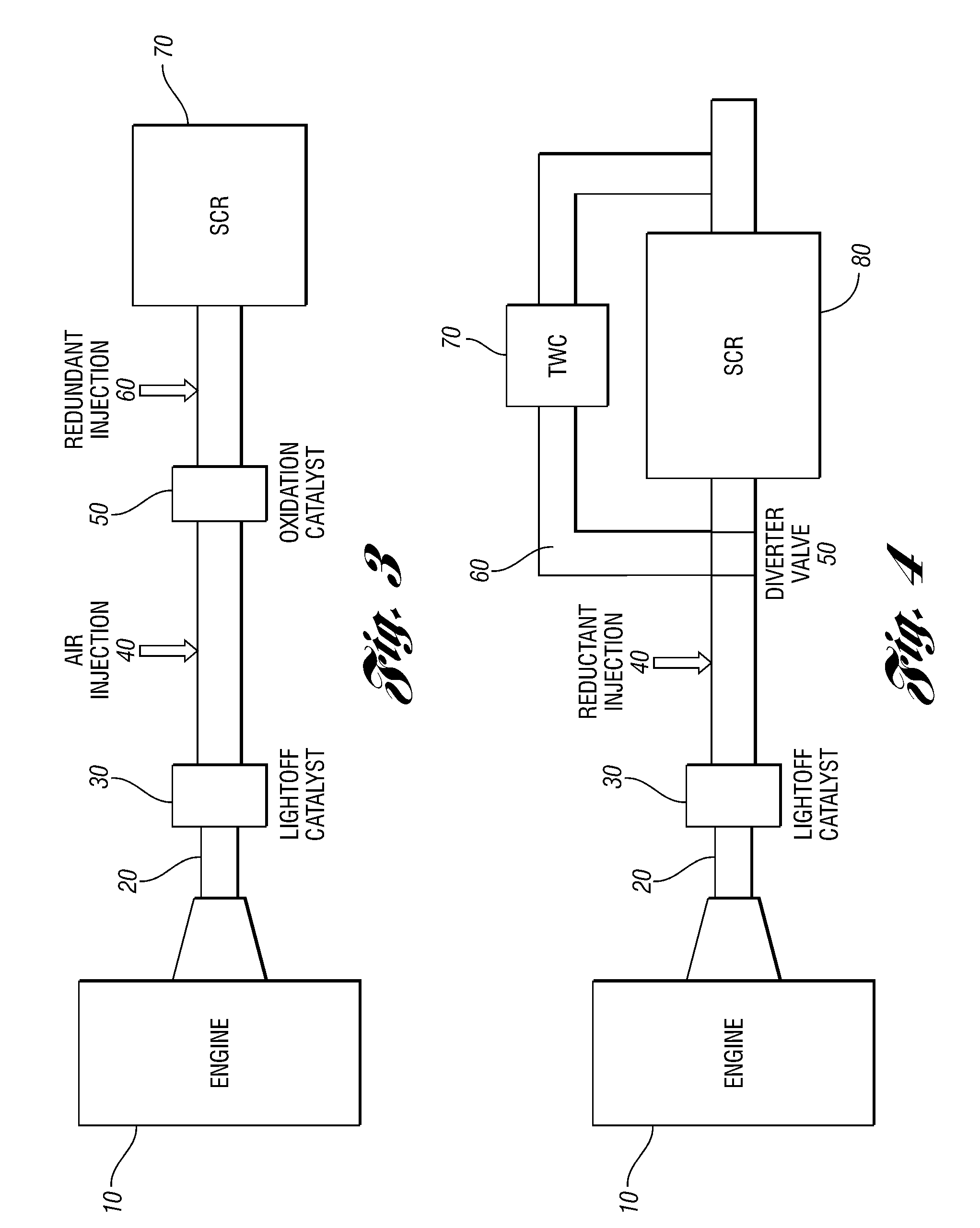Air-injection system to improve effectiveness of selective catalytic reduction catalyst for gasoline engines
a selective catalytic reduction and gasoline engine technology, applied in the direction of machines/engines, separation processes, mechanical equipment, etc., can solve the problems of insufficient no/sub>x/sub>conversion efficiency in a lean atmosphere, needing to carry an extra reductant, and increasing pressure, etc., to achieve the effect of improving the durability of the selective catalytic reduction catalys
- Summary
- Abstract
- Description
- Claims
- Application Information
AI Technical Summary
Benefits of technology
Problems solved by technology
Method used
Image
Examples
Embodiment Construction
)
[0023]Selective catalytic reduction (SCR) catalysts are a leading candidate for NOx control during lean operation on gasoline engines. The SCR catalyst uses base metals to promote the reaction between NOx and NH3 to produce N2 under lean conditions. Compared to other existing technologies, SCR catalysts are advantageous as they operate over a broad range of temperatures, are robust to the feedgas NOx concentration, and are cost-effective as they do not require the use of precious metals. However, during high load operation, gasoline engines normally operate at stoichiometric or rich air / fuel ratios and the resulting hot rich exhaust or hot stoichiometric exhaust is detrimental to the durability of the SCR catalyst. Under such hot conditions, the SCR catalyst must be protected, to maintain the SCR catalyst's NOx conversion capability when the exhaust temperatures are lowered and the air / fuel ratio returns to a lean condition.
[0024]The SCR formulations currently being developed for v...
PUM
| Property | Measurement | Unit |
|---|---|---|
| exhaust temperatures | aaaaa | aaaaa |
| inlet temperature | aaaaa | aaaaa |
| temperature | aaaaa | aaaaa |
Abstract
Description
Claims
Application Information
 Login to View More
Login to View More - R&D
- Intellectual Property
- Life Sciences
- Materials
- Tech Scout
- Unparalleled Data Quality
- Higher Quality Content
- 60% Fewer Hallucinations
Browse by: Latest US Patents, China's latest patents, Technical Efficacy Thesaurus, Application Domain, Technology Topic, Popular Technical Reports.
© 2025 PatSnap. All rights reserved.Legal|Privacy policy|Modern Slavery Act Transparency Statement|Sitemap|About US| Contact US: help@patsnap.com



